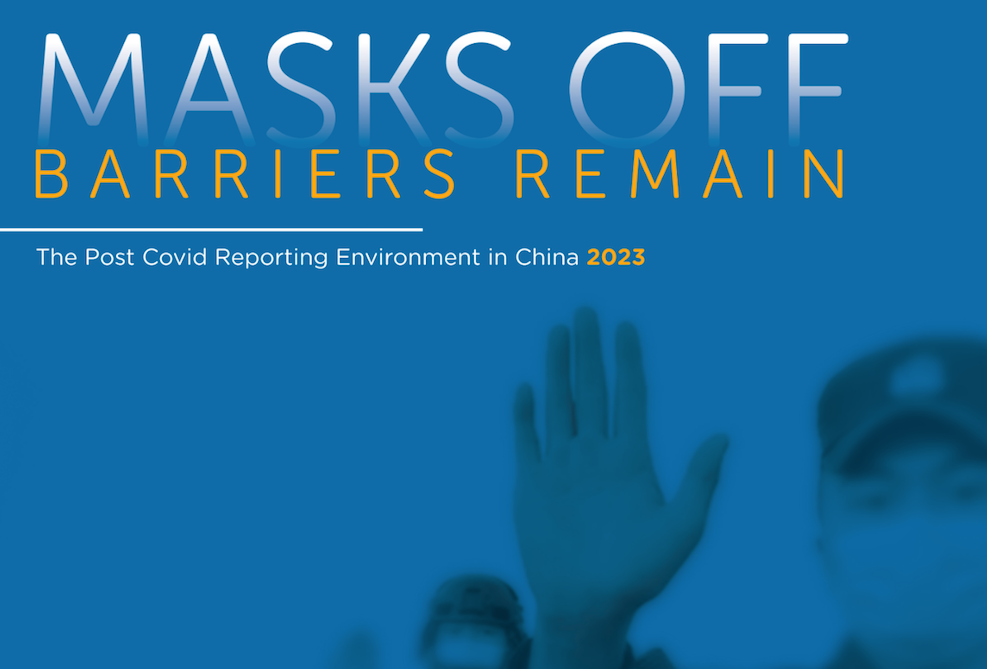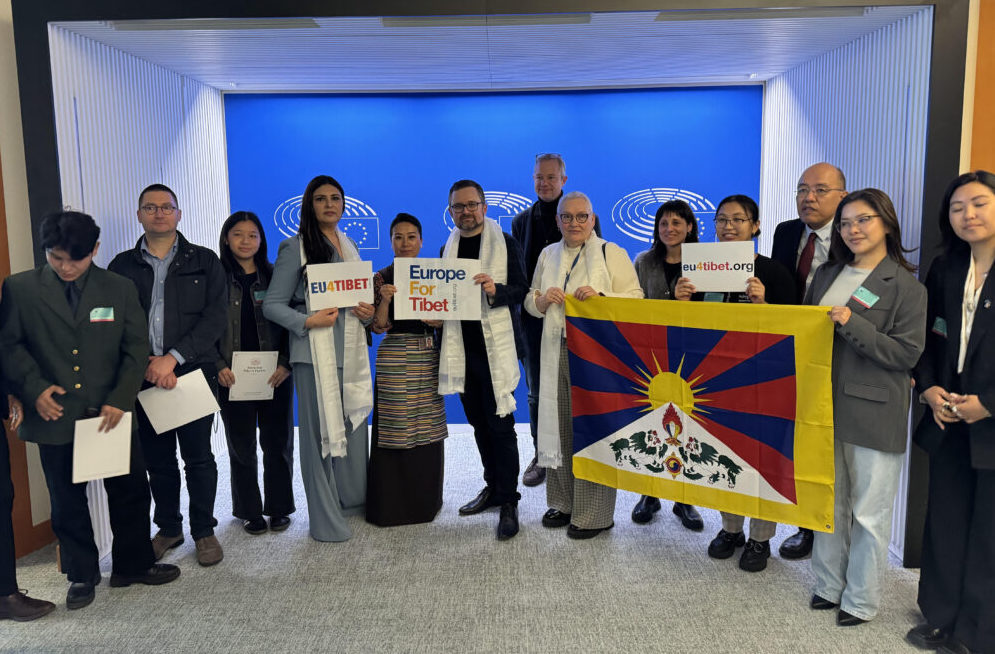 On Sunday, March 30th in Nashville, Tennessee, USA, around 250 people gathered on the Courthouse steps for a rally for Tibet sponsored by the newly-formed organization, “One Human Race 4 Justice.” The brainchild of Tibetan exile Ngawang Losel, the event was organized by a small group of people who represented Buddhists, Jews, and Christians who care deeply about the Tibetan people. The rally gathered people from diverse religious and cultural backgrounds to stand together for human rights for Tibetans and the oppressed of the world. Members of the Burmese community were there, as well as several monks from Drepung Loseling Monastery in Atlanta, Georgia. Tibetan university students came from as far away as Kentucky to attend, with signs that said “Dialogue Not Oppression, is the Solution,” “Human Rights in China,” “Peace in Tibet,” “Rise, Resist, Return” and “Long Live His Holiness, the Dalai Lama.” Members of the wider Middle Tennessee community representing Buddhists, Christians, Jews, Hindus and Muslims from many different ethnic backgrounds were present, young and old, and chanted “Free Tibet,” “Tibet will be Free,” and “China Out of Tibet.” The rally began and ended with Tibetan Monks, holding Tibetan flags and framed by Tibetan prayer flags against the massive backdrop of the Courthouse, chanting and singing.
On Sunday, March 30th in Nashville, Tennessee, USA, around 250 people gathered on the Courthouse steps for a rally for Tibet sponsored by the newly-formed organization, “One Human Race 4 Justice.” The brainchild of Tibetan exile Ngawang Losel, the event was organized by a small group of people who represented Buddhists, Jews, and Christians who care deeply about the Tibetan people. The rally gathered people from diverse religious and cultural backgrounds to stand together for human rights for Tibetans and the oppressed of the world. Members of the Burmese community were there, as well as several monks from Drepung Loseling Monastery in Atlanta, Georgia. Tibetan university students came from as far away as Kentucky to attend, with signs that said “Dialogue Not Oppression, is the Solution,” “Human Rights in China,” “Peace in Tibet,” “Rise, Resist, Return” and “Long Live His Holiness, the Dalai Lama.” Members of the wider Middle Tennessee community representing Buddhists, Christians, Jews, Hindus and Muslims from many different ethnic backgrounds were present, young and old, and chanted “Free Tibet,” “Tibet will be Free,” and “China Out of Tibet.” The rally began and ended with Tibetan Monks, holding Tibetan flags and framed by Tibetan prayer flags against the massive backdrop of the Courthouse, chanting and singing.
Participants were welcomed by One Human Race 4 Justice co-founder, Daniel Beck, who spoke of the Tibetan oppression as a microcosm for the oppression of so many other populations around the globe. Following that, Skip Ewing of the Nashville Mindfulness Center offered a moment of meditation and reflection while singing a mantra accompanied by the clear, distinct tones of three singing bowls. Ewing is ordained by Thich Nhat Hanh and spoke of the positive energy within each one of us. Participants at the rally sat and prepared themselves mentally and spiritually to receive the messages to follow.
Speakers at the rally included Tibetan exiles, religious leaders from many different faiths and activists. The keynote address was given by author and Tibetan exile Jamyang Norbu, who spoke of the economic choices the United States makes that help support the oppressive Chinese regime and how China’s tentacles reach throughout the world. He also spoke of the oppression of the Burmese people, and China’s heavy influence in Burma and North Korea in particular. Norbu urged listeners to get fully informed on the situation in Tibet, to read and truly understand the situation and be able to relate it to others. He spoke of the Chinese lock on media and information, and the bravery of the monks in Lhasa’s Jokhang Temple who forced through military police surrounding a group of approximately 30 foreign journalists to shout “Tibet is not free,” and “The government is lying.”
Other speakers included African-American inter-racial moderator Monteneaz Wade, who spoke passionately about the urgency of the Tibetan situation, saying “I know about oppression.” She charged the crowd to literally and metaphorically get up on their feet to stand up for freedom of all people, and respect others with different lifestyles, religions or skin color. She spoke of the vitality of self empowerment after being released from bondage, relating to the enslavement of African Americans in the United States. Amanda Cantrell Roche, one of the organizers of the event, spoke of the importance and power of each person’s voice. She urged the crowd to write letters to US representatives regarding Tibet, to sign petitions and use the internet to forward these to friends, co-workers and family so that one voice can add up to millions. Poetry written by Tibetan exiles was read by event organizers Krystal Kinnunen and Ngawang Losel, who also shared his story of growing up in Lhasa. The audience was asked at one point to cover their mouths, and to twist one arm behind their back and hold for one minute, while reflecting on the physical and mental oppression suffered by Tibetan prisoners of conscience as well as “free” Tibetan citizens.
Messianic Congregation leader, Reverend Kenneth Alprine, related the plight of the Tibetans to the enslavement of the Jews, and led the crowd in chanting “Shalach et Ami” Sanskrit for “Let my people go.” Event organizer Tamara Ambar Losel, who is married to Ngawang Losel, shared Hebrew texts that spoke eloquently of the parallels between Jewish and Tibetan people. Christian Reverend Becca Stevens offered a prayer for peace. Taiwanese Professor Peter Li spoke of the bonds that the Chinese government holds over Tibetans and all Chinese citizens. He said people had warned him that if he spoke at this event, he might be blacklisted and not be able to return to his homeland. “I don’t need to go to China,” he explained. “I can go to Wal-Mart any day.” Setting a statue of Buddha down and pulling out a toy gun, he said “This is what China does to the Buddha,” and he shot the statue. “But Buddha does not change. Buddha does not get hurt.” The speeches concluded with Gigi de Lugo, a 4th generation U.S. Virgin Islander, grandmother and co-founder of “One Human Race 4 Justice,” who led the crowd in repeating the chorus of a Beatles song, “Let it Be.”
Everyone at the rally was encouraged and charged to get more involved in speaking out against the oppression of the Tibetans, because Tibetans cannot speak out themselves without threat of imprisonment or worse. Losel articulated what has come to be the mantra of One Human Race 4 Justice: “The free must speak for the unfree, and the silenced.”
Information from the International Campaign for Tibet, Students for a Free Tibet and Amnesty International was distributed, as well as a “Take Action for Tibet” handout put together by One Human Race 4 Justice.
The gathering ended by the entire group forming a huge circle and perambulating around a circular sidewalk nearly the size of a football field, lead by the monks and accompanied by drummers. As the circle reached the stage where it began, people gathered around the monks once more as they chanted and sang.
Mona Barz, who attended the rally with her family, called the event “phenomenal.” “Every little touch, every person there added so much,” she explained. “It had that grass roots feel to it. That characteristic was so in tune with what the cause was all about. I can’t believe that there was a single person there that was not deeply moved.”
Barz pointed out that the materials to get involved and action steps after hearing the speakers was crucial, and that the content of the rally provided both information and passion. “What was so important to me,” she described, “was that it was educational and so deeply inspirational.”
The “One Human Race” rally was supported by government officials within Nashville and was covered by local television news and print media. Recognizing the urgency and importance of this event, Nashville Mayor Karl Dean made a special exception for the often lengthy permit process for an event such as this and pushed it through so the event could be legally held. A local action group, the Nashville Peace and Justice Center, sponsored a screening of the documentary, “Tibet: Cry of the Snow Lion” in the evening after the rally, which was attended by many members of the Burmese community, and was followed by a talk by Losel, members of the Burmese community and a question and answer session.
One Human Race 4 Justice plans to continue efforts to raise awareness for the Tibetan situation and promote action steps, such as boycotting the opening and closing ceremonies of the Olympic games and encouraging people to write to US Representatives to urge China to open a dialogue with His Holiness the Dalai Lama. This event was one of hundreds across the United States and the globe in support of the Tibetan people.









